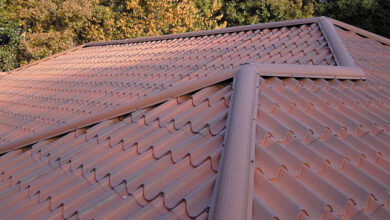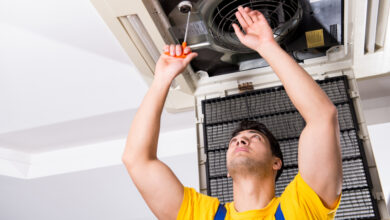Certified Home Inspections: What They Cover and Why They’re Necessary

Certified home inspections are crucial when buying or selling a house. They offer a thorough check of the property’s condition. This includes the roof, foundation, plumbing, and electrical systems.
Knowing what these inspections cover and why they’re necessary can help you make informed decisions. In this guide, we’ll explore the key areas inspected and their importance.
What Does a Certified Home Inspection Cover?
Here are the main areas that a certified home inspection typically covers:
Structural Components
A certified home inspection looks at the house’s structural components. This includes the foundation, walls, roof, and floors. The inspector checks for any cracks, leaks, or damage. They ensure the structure is sound and safe.
If you are interested in tiny homes, you can certify tiny home structures to make sure they meet standards. This certification can give you peace of mind about the integrity of your tiny home.
Electrical Systems
A certified home inspection will look closely at the electrical systems. The inspector will check the wiring, outlets, switches, and the main electrical panel. They will look for any faulty wiring or outdated systems that might pose a danger. A proper property inspection of the electrical systems helps ensure the house is safe and meets current standards.
This can prevent future problems, such as electrical fires or power outages. With a thorough property inspection, you can feel confident that the electrical systems in your home are in good condition.
Plumbing Systems
A certified home inspection will also evaluate the plumbing systems. The inspector examines the pipes, faucets, and fixtures throughout the house. They look for leaks, corrosion, and any signs of water damage. This helps ensure that the plumbing is functioning properly.
Any issues with the plumbing can lead to more significant problems, such as mold or structural damage. A proper home structure inspection includes a thorough review of the plumbing systems to protect against these risks. By identifying and addressing plumbing issues early, you can save time and money in the long run.
HVAC Systems
A certified home inspection includes a check of the HVAC systems. The inspector will look at the heating, ventilation, and air conditioning units. They check for proper installation and maintenance. The inspector ensures that each component is working efficiently.
Good HVAC systems are important for maintaining comfortable temperatures. They also impact energy bills and indoor air quality. A thorough inspection can help identify issues early. This helps prevent costly repairs in the future.
Roof and Exterior
A certified home inspection also covers the roof and exterior. The inspector will check for missing or damaged shingles. They will also look for signs of leaks or water damage. The exterior inspection includes looking at the siding, windows, and doors. The inspector ensures that these areas are in good condition and sealed properly to prevent drafts or water intrusion.
This part of the inspection helps to ensure that the home is protected from the elements. Proper maintenance of the roof and exterior can prevent costly repairs down the road.
Interior
The interior of a home is inspected carefully during a certified home inspection. The inspector checks floors, walls, and ceilings for any signs of damage or wear. They also look at the condition of doors and windows inside the house.
Inspectors ensure that doors and windows open and close properly. They also check for any signs of moisture or mold inside the home. The inspector assesses the condition of stairs and railings to ensure they are safe.
Appliances included in the sale are also inspected to ensure they are working. The inspector takes a close look at bathrooms, checking for leaks or other plumbing issues.
They examine the kitchen to ensure that cabinets and countertops are in good condition. A thorough interior inspection helps to ensure that the home is safe and comfortable.
Insulation and Ventilation
A certified home inspection also includes a thorough look at the insulation and ventilation of the house. Proper insulation helps keep the home warm in the winter and cool in the summer. It can also reduce energy bills by making heating and cooling systems more efficient.
During the inspection, the inspector checks the attic, walls, and floors for adequate insulation. Ventilation is equally important for maintaining good indoor air quality. The inspector looks for sufficient airflow in the attic and basement.
They make sure that vents and exhaust fans are working correctly. Proper ventilation helps prevent moisture build-up, which can lead to mold. It can also remove pollutants from indoor air. A good inspection of insulation and ventilation can make the home more comfortable and safer.
Appliances
A certified home inspection will also examine the home’s appliances. The inspector will look at the condition of the refrigerator, stove, and oven. They will also check the dishwasher, washing machine, and dryer. The inspector ensures these appliances work properly.
They will check for any signs of damage or wear. Properly functioning appliances are important for everyday living. Issues with appliances could lead to expensive repairs or replacements. The inspector will test the appliances to see if they are in good working order. This helps ensure there are no hidden problems. Good appliances can add to the home’s value and convenience.
Why Are Certified Home Inspections Necessary?
Certified home inspections provide crucial insights into a property’s condition, helping to avoid potential pitfalls. Here are some key reasons why these inspections are essential:
Peace of Mind
Certified home inspections provide peace of mind by making sure everything in your new home is in good condition. When buying a house, you want to know it is safe and sound. These inspections check for any problems that could cause issues in the future.
Knowing the condition of the house helps you make informed decisions. If there are any problems, you can address them before they’re too costly. This can save you from surprise expenses later. Sellers also benefit as they can fix issues before listing their property.
An inspection report can assure potential buyers about the house’s condition. It adds a layer of trust in the transaction process. Overall, certified home inspections give everyone involved confidence and peace of mind.
Uncover Hidden Issues
Certified home inspections help uncover hidden issues that might be missed otherwise. Inspectors can find problems in places you don’t usually check. These could include areas like the attic, crawl spaces, or behind appliances. Small problems can become big ones if not fixed.
An inspection can reveal leaks, mold, or faulty wiring. Knowing about these issues early helps you address them right away. This could save you a lot of money in the future. It also helps you negotiate better deals when buying or selling a home. Ultimately, inspections ensure that you’re fully aware of the property’s true condition.
Negotiation Power
Certified home inspections give you negotiation power. If the inspector finds issues, you can use this information in price discussions. Buyers can ask for repairs before the sale is finalized. Sellers might offer to lower the price if there are significant problems.
This makes the buying process fair and transparent. It helps both sellers and buyers feel satisfied with the deal. Knowing the home’s condition lets you make better decisions. It ensures that you are not overpaying for a property.
Negotiation becomes easier when you have a detailed inspection report. This information makes both parties more confident in the transaction.
Safety
Certified home inspections are very important for ensuring the safety of a home. They help identify potential hazards before they become serious. Inspectors check for faulty electrical wiring that could cause a fire. They also look for gas leaks that could lead to poisoning or explosions.
The inspection covers plumbing issues that might cause water damage or mold growth. This makes sure the living environment is not only comfortable but also safe. HVAC systems are also checked to prevent carbon monoxide leaks.
Inspectors look at the stability of stairs and railings to avoid accidents. They also check for pests that could affect health. Overall, safety inspections give you confidence in the security of your home.
Future Planning
Certified home inspections are vital for future planning. When you know the condition of a property, you can budget for necessary repairs. Inspections can point out areas that will need attention soon. This allows you to prioritize what to fix first.
Planning ahead helps you avoid unexpected costs. It also ensures that your home remains in good condition over time. Knowing what needs to be fixed can help you estimate long-term expenses.
This information can also be useful if you plan to sell the home later. Buyers appreciate a well-maintained house. A good inspection report can make your property more appealing to future buyers.
Learn All About Certified Home Inspections
Certified home inspections are really important. They check for problems in a house. This helps you avoid big issues later. Knowing the condition of a house is good for both buyers and sellers.
Inspections make sure the house is safe. They help you plan for future repairs. Overall, inspections give peace of mind and keep everyone happy.
Did you find this article helpful? Check out the rest of our blog.




